Table of Contents
Ceramic Coating
★★★★★ "Easier to apply than a wax and my car looks better than new. Home run!" -John H.
Learn MoreYour car should look just as new as the day you bought it. As a result, you regularly wash it thoroughly and apply a fresh coat of wax every few months. However, despite your efforts, the exterior of your car starts to develop swirl marks, chips, and stains. The day after you give your car a thorough wash, it starts to accumulate dirt, grime, and water stains. Some car owners compare it to powder coating, which shields tools and property from the environment and rust.
What if there was a product that could change this story, one that would protect you from potential pollution, make washing your car easier, and not require frequent use? Good news! The term "Ceramic Coating" (or "Nano-Ceramic Coating") refers to a process that could significantly increase the value of your car.
But it's important to have all the information clear before making a purchasing decision. If you've read anything about ceramic coatings online, you might have run upon some contradictory statements. On the one hand, producers and detailers have made incredible claims about how well their ceramic coatings will perform. On the other hand, several critics of car care have made criticisms.
What is Ceramic Coating? What advantages do they have? What are the limitations? What is the best option for your car?
What is a Ceramic Coating?
A chemical polymer solution called industry-grade Ceramic Coating is used to cover a car's exterior to protect the paint from environmental deterioration. It is often applied by blending it with the paint on your car to give a second hydrophobic level of protection.
The car's original paint job is not affected by this chemical interaction since a fresh layer is formed. While many car enthusiasts and even detailers mistakenly think that ceramic coating is a replacement for a clear bra (paint protection film), in fact, it is a substitute for waxing. The major goal is to stop dirt, grime, and stain marks from damaging the clear coat by showing on the paint finish. Depending on the coating and type of liquid polymer used, the ceramic coating is also known as nano-ceramic coating it can be a permanent or semi-permanent solution to your problems. It does not decompose under normal atmospheric conditions like rain or summer because of its fundamental chemical characteristics.
What Does a Ceramic Coating Do?
Ceramic Coating adds additional protection to your car's exterior and helps keep it looking like-new with minimal maintenance. The coating achieves this result by making your car more resilient and easier to clean.
-
Protection from Uv Damage / Oxidization
A car's paint will start to oxidize if it is in the sun frequently, which causes it to become dull and faded. The amount of oxidization is decreased by Ceramic Coating, which protects a car's paint from the sun's ultraviolet rays.
-
Protection from Chemical Stains and chipping
-
Chemical discoloration from naturally acidic substances is another risk to your car. A ceramic coating can prevent some contaminants from sticking to the paint of your car by providing a chemically resistant surface. In the event that the pollutant is immediately removed, your car will be more resistant to chipping and stains as a result.
-
Ease of Cleaning
The Ceramic Coating repels water, which means that dirt and grime can be removed with less effort when washing it off.
-
Enhanced Gloss
A good Ceramic Coating enhances the reflective properties of your car's paint and clear coat. It will add to the depth and clarity of your paint, give it a glossier finish as well as reduce the appearance of rust and grime on your vehicle.
Ceramic Coating maintains your car's appearance and lowers ongoing maintenance needs for the reasons mentioned above. So, if you decide to have ceramic coating added, your car will now have more value.
Ceramic Coating
★★★★★ "Easier to apply than a wax and my car looks better than new. Home run!" -John H.
Learn MoreWhat Does a Ceramic Coating Not Do?
Ceramic Coating is not a magic formula, or a super-cure chemical that will fix every issue with your car, despite what certain manufacturers and detailers might say. It is important for you to understand what a ceramic coating cannot do.
-
Reduce the Risk of Rock Chips, Swirl Marks, and Scratches
Ceramic coating's scratch resistance is often overstated. Car ceramic coating won't be fully resistant to the possibility of dirt, grains, or parking lot scratches. improper car washing methods or automatic car washes will still leave swirl marks on the surface of your car. It's important to understand that Ceramic Coating does not replace more robust scratch or chip protection, such as paint protection film.
-
Reduce the Risk of Water Spotting
Car owners and car detailers may believe that a ceramic coating's hydrophobic properties, which cause water to slide off the coated surface, will prevent water spots. Although some water will be repelled by the coating, other droplets will form and stick to the car, giving the chance for water-spotting. A certain amount of grains or dirt can be found in a drop of water - as water evaporates, particles are left behind.
-
Reduce the Need to Wash
A ceramic coating keeps your car looking like new with relatively minimum maintenance, not no maintenance. You will still need to regularly wash your car even if it has a Ceramic Coating to keep it looking good. Ceramic Coating also means you won't need to wax it every few months, which takes care of a big part of exterior car care.
Why Apply Ceramic Car Coating?
-
Longer-Lasting than Car Wax
Although ceramic wax makes your car look stunning, the effect only lasts three to six months. The best ceramic coatings for cars can last for more than a year. While Ceramic Coating may need more work to apply, they require less frequent reapplication than regular carnauba wax. Why not try out our Ethos Top Quality-Ceramic Coating.
-
Protection from The Pollution
Your car is protected by ceramic coatings from UV rays, particles, rain, stains, oils, pollutants, and environmental fallout. Your paint job may suffer depending on where you live. Your paint coating is long-term protected by a ceramic car coating.
-
Cut Down on Cleaning Time
Your car's surface will become slick once a ceramic car coating cures and hardens, making it difficult for water, dirt, and debris to stick. Cleaning your car will take less time and less debris there is on it.
-
Cheap Way to Enhance Your Car
Products for ceramic car coatings typically cost between $15 to $25. Professional grade kits are more expensive, although the majority are under $100. Why not try our High-quality Ethos Ceramic Coating Kit
Ceramic Coating Myths
There are some myths about ceramic coating for cars that either draw customers in or turn them away. These are a few of them.
-
Your car will be completely scratch-proof.
-
It is designed for lazy car owners who refuse to maintain their cars.
-
Grimes and dirt will not damage the paint of your car.
-
It can be applied and used immediately.
-
A regular car wash is not needed.
Ceramic Coating
★★★★★ "Easier to apply than a wax and my car looks better than new. Home run!" -John H.
Learn MoreConclusion
It's important to do your research before deciding whether a product is appropriate for your car. Will your vehicle benefit from and gain value from ceramic coatings? Definitely! Are Ceramic Coatings a miracle, one-stop-shop solution for all of your vehicle’s exterior problems? Definitely not! Ethos provides a collection of products to help finding what works for your car easier than ever!
It's also important to understand that Ceramic Coating cannot replace the superior protection offered by a high-quality Clear Bra (Paint Protection Film). For maximum defense, cover the most exposed areas of your car with Paint Protection Film, then cover every painted surface with Ceramic Coating.

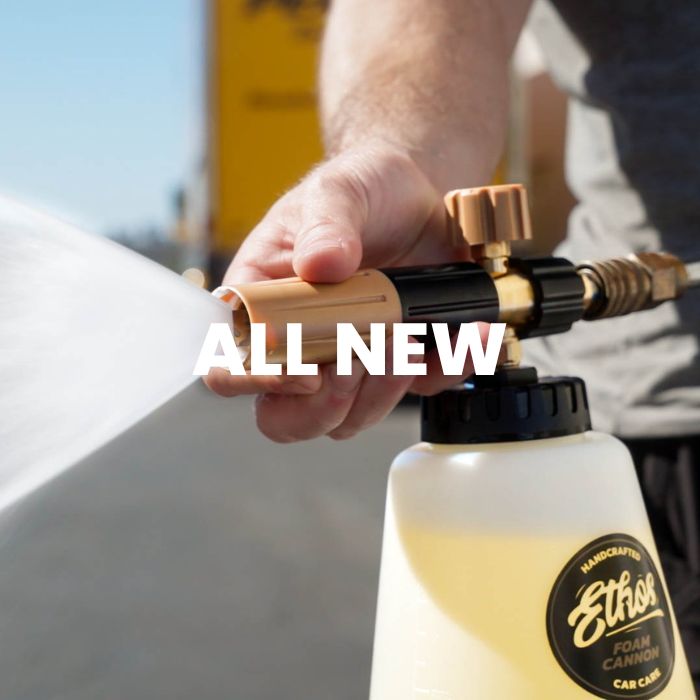

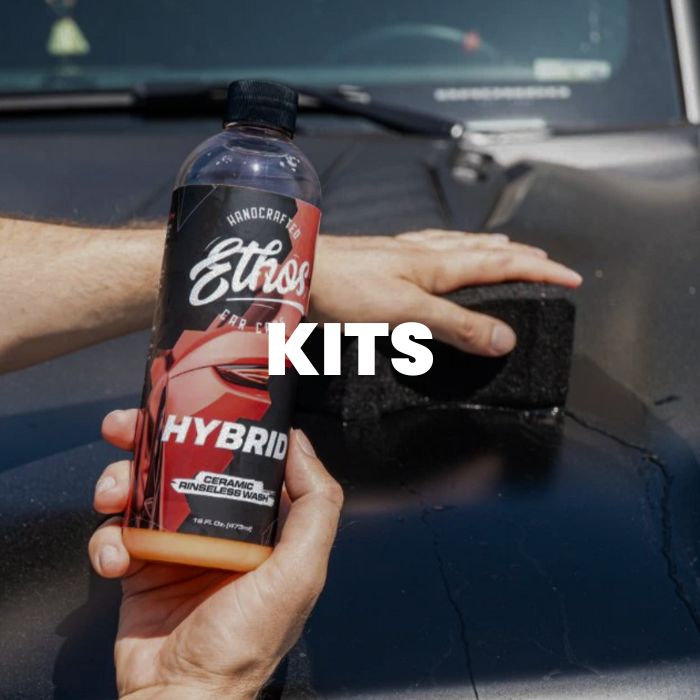
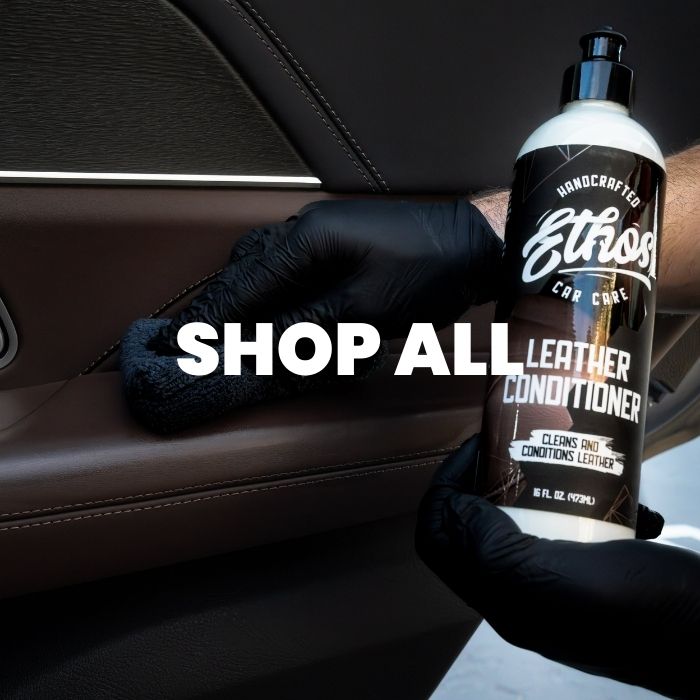
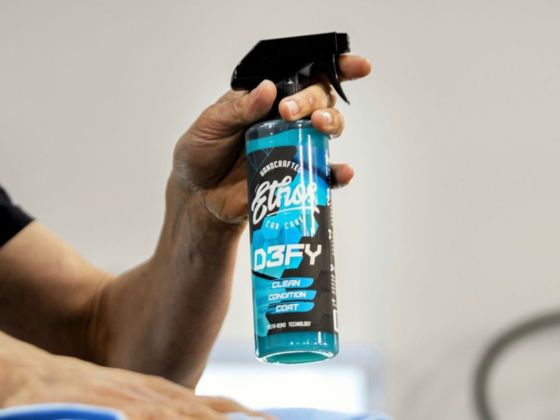
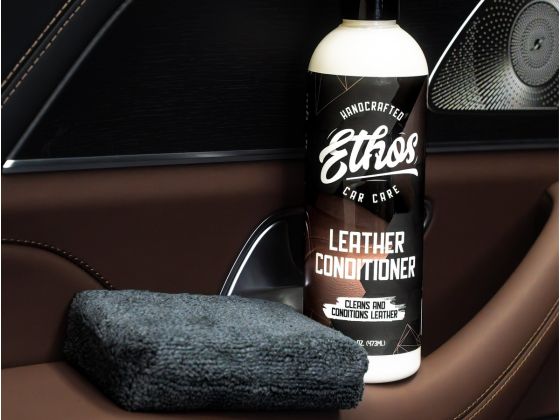
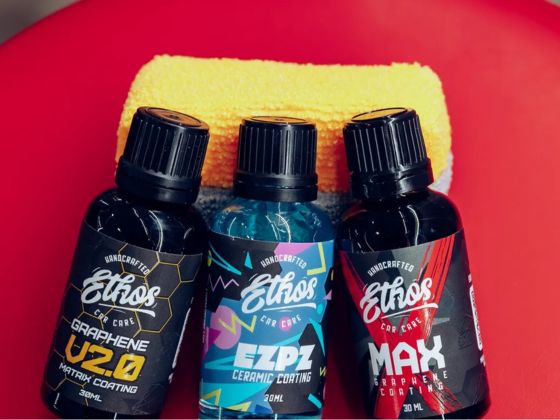
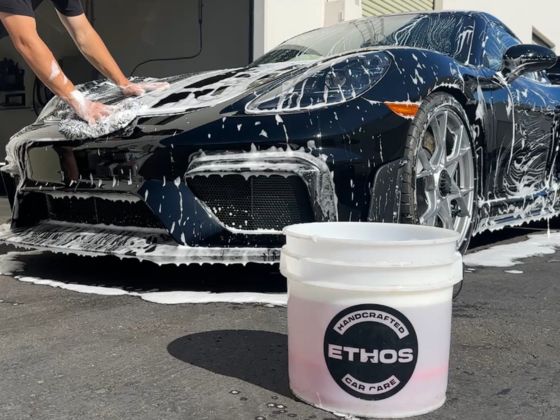
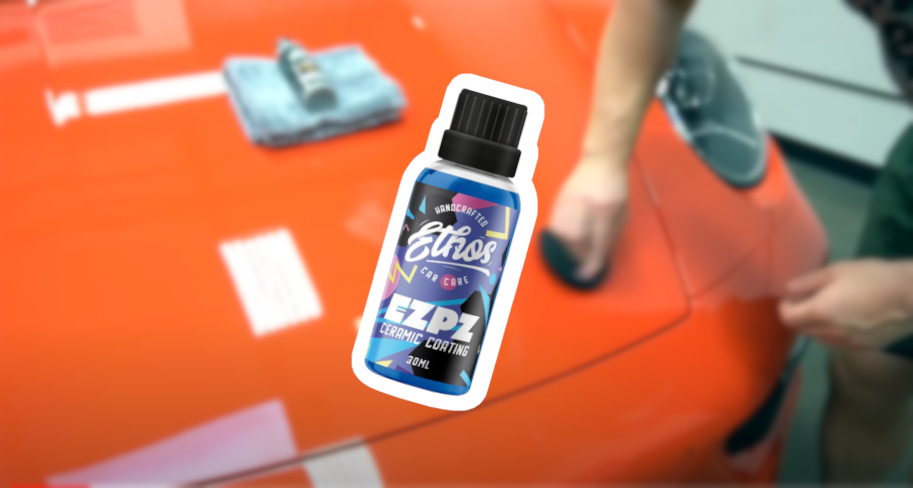
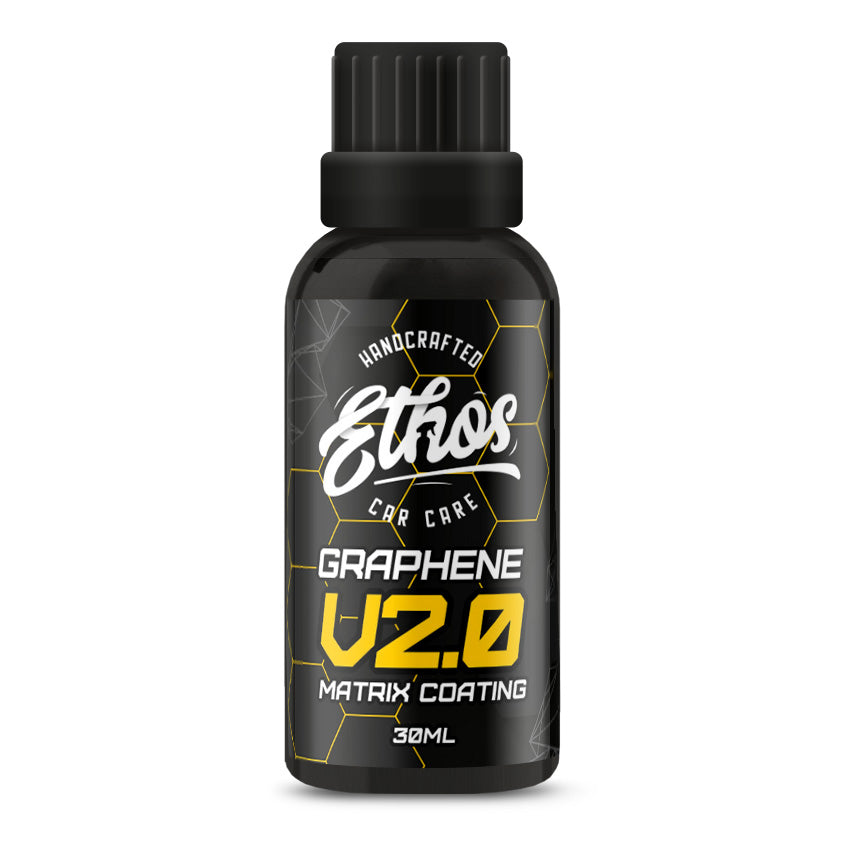
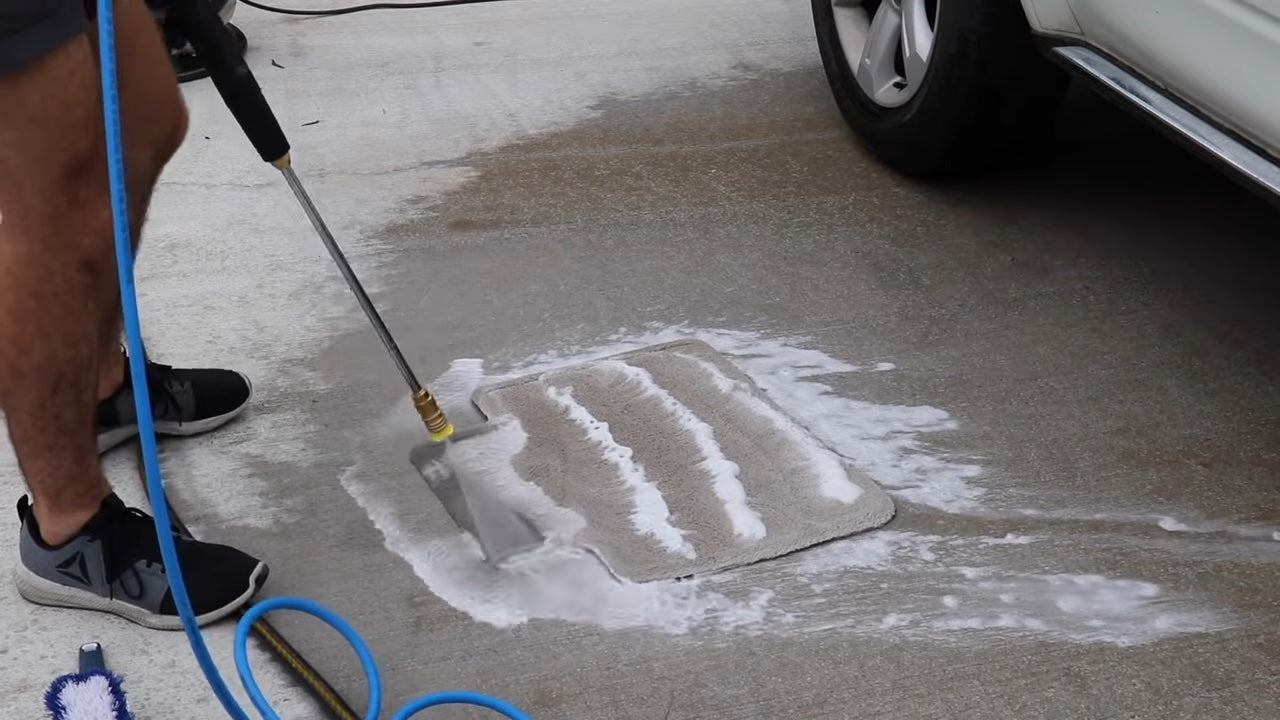
1 comment
David
What if I had some morning dew on vehicle over night after I used graphene. Will it still cure properly?
What if I had some morning dew on vehicle over night after I used graphene. Will it still cure properly?